Impact Report Essential Investments
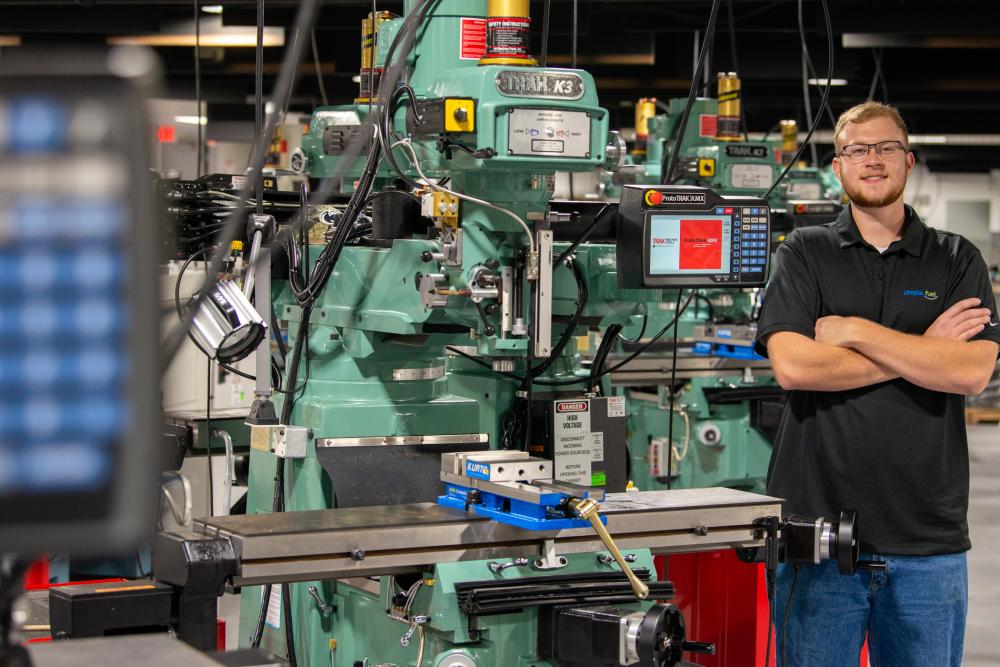
PROVIDING THE BEST POSSIBLE EDUCATION
As he commenced his senior year in the manufacturing engineering technology bachelor’s degree major this fall, Christopher M. Schweikert had already experienced the impact of his hands-on education.
“I have had an internship every year, and every year I’ve been able to be more effective with what I’ve learned,” said Schweikert, who will also graduate with two associate degrees: automated manufacturing technology and machine tool technology.
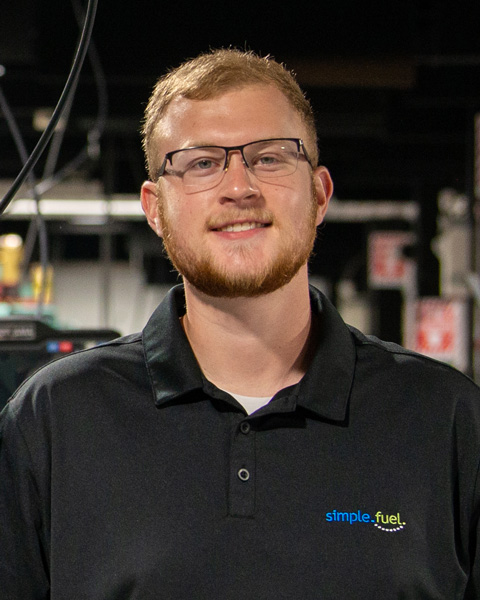
This summer, despite an initial internship opportunity being canceled due to COVID-19, he was able to connect, through a friend, with PDC Machines in Warminster. The firm, just a few minutes from Schweikert’s home, manufactures compressors – mainly used to compress hydrogen – and hydrogen refueling stations for fuel-cell vehicles. The company recently entered a sustainability partnership with the Philadelphia Eagles to install SimpleFuel hydrogen refueling units outside Lincoln Financial Field that will power the team’s Hyundai Nexo vehicle and some of its material-handling forklifts.
Over the summer, Schweikert spent four weeks in the company’s machine shop and six weeks in its engineering division.
“During my time there, I got to machine parts, create programs, spec out tooling, design material-handling solutions, and give plenty of suggestions for improving things around the facility,” he said.
“Chris joined our organization and completely hit the ground running!” said Sobia Chaudhry, human resources manager for PDC Machines. “He was quick to learn the inner workings of our operation as well as understand the culture of PDC and drivers of manufacturing hurdles. He was highly analytical, and his approach helped open up new avenues for improvement.”
Before Schweikert’s arrival, the company had begun making “lean manufacturing” improvements, and Schweikert was able to use what he’s learned to further its progress. Two classes he took in 2019-20 were particularly valuable.
“I think that my CNC Applications class with Rick Hendricks (instructor of machine tool technology/automated manufacturing), learning more about Mastercam, helped me see what CNC improvements could be made,” he said. “Faster and more efficient tool paths would greatly reduce cycle times and allow the company to produce more of their products for less money.
“My Lean Manufacturing class with Paul Albright (instructor of manufacturing engineering technology) was very helpful, too,” he added. “This class helped me identify where waste was and how things should be properly organized and fixed on the production floor.”
Schweikert was able to implement some of those solutions – all aimed at a leaner and more efficient work environment.
The 10-week internship wrapped up three days before Fall 2020 classes began. So he left work, packed that evening and headed to Williamsport the next morning.
As president of the college’s successful Baja SAE club, one of his first stops on campus was the Larry A. Ward Machining Technologies Center, the team’s home base. Baja SAE is a program of the Society of Automotive Engineers International. It challenges engineering students to design and build an off-road vehicle that will survive the severe punishment of rough terrain.
The center had received extensive upgrades since Schweikert and his Baja SAE teammates vacated the building – and their work on their car – during Spring Break as the college followed the state’s orders to close nonessential facilities.
“It looks amazing,” Schweikert said of the center, pointing out “tons of light,” plenty of tabletop space and both more and newer machines.
The renovations and new equipment installations were made possible by a gift from Ward, a 1966 engineering drafting technology graduate, who had students like Schweikert in mind.
Ward is the founder of Packaging Progressions Inc., a Pennsylvania company that designs and builds packaging machines for the food industry.
“Penn College has the students that we need. We need people with actual hands-on experience,” Ward said.
The Baja team is looking forward to enhancing that experience on the center’s new equipment, including a group of ProtoTrak machines, which Schweikert described as “manual machines with CNC capability.”
“Before we had just a manual mill or lathe,” he said. “Now with the ProtoTrak, we can give it a program, and it machines the part. It’s easy to do setups. The ProtoTrak machines also have conversational programming and the ability to run a Mastercam-generated program. We can use the ProtoTraks instead of having to go over to the College Avenue Labs building and use a much larger (CNC) machine, and there are only a few of those.
“It really opens up opportunities not just for us (the Baja team) to use them, but for others, too,” he said.
The team was eager to finish its newly designed two-wheel-drive car, with hopes to show what it can do during spring competitions, if COVID-19 restrictions allow.
“We have a lot of new parts and materials that some of our sponsors had sent us over the summer in preparation for finishing the car this season,” Schweikert said. “We have plans to update our suspension with lightweight titanium from TMS Titanium in California. We cannot wait to get started manufacturing components in the new machine shop.”
Hands-on experience in class and on the Baja SAE team, working through a variety of problems – and solutions – have been invaluable.
“All of my classes and my Baja experience have definitely helped shape me into the engineer I am now,” Schweikert said, noting that the manufacturing engineering technology program first shows students how to be machinists. “This greatly helps me as an engineer to identify problems and come up with efficient methods for creating parts because I understand how to do that job.”
His internship provider is happy to have reaped the benefit of that hands-on learning, extending a job offer that will make him the company’s first manufacturing engineer (joining its project engineers).
“He confidently made recommendations at the end of his summer internship that will bring lasting and impactful changes to PDC Machines,” Chaudhry said. “We truly enjoyed the breath of fresh air he provided and look forward to having Chris continue working with us.”
Pennsylvania College of Technology students in five manufacturing-related majors are gaining hands-on benefit thanks to Larry A. Ward, '66, founder of Packaging Progressions Inc., who made a donation exceeding $1 million to revamp the college's machining lab. It's the largest alumni gift in the college's history. Ward's generosity has resulted in fresh painting, lighting, fixtures and, most importantly, 50 new machines for the 14,299-square-foot lab.
Penn College’s hands-on education and student-centered environment provide the best possible outcomes for students
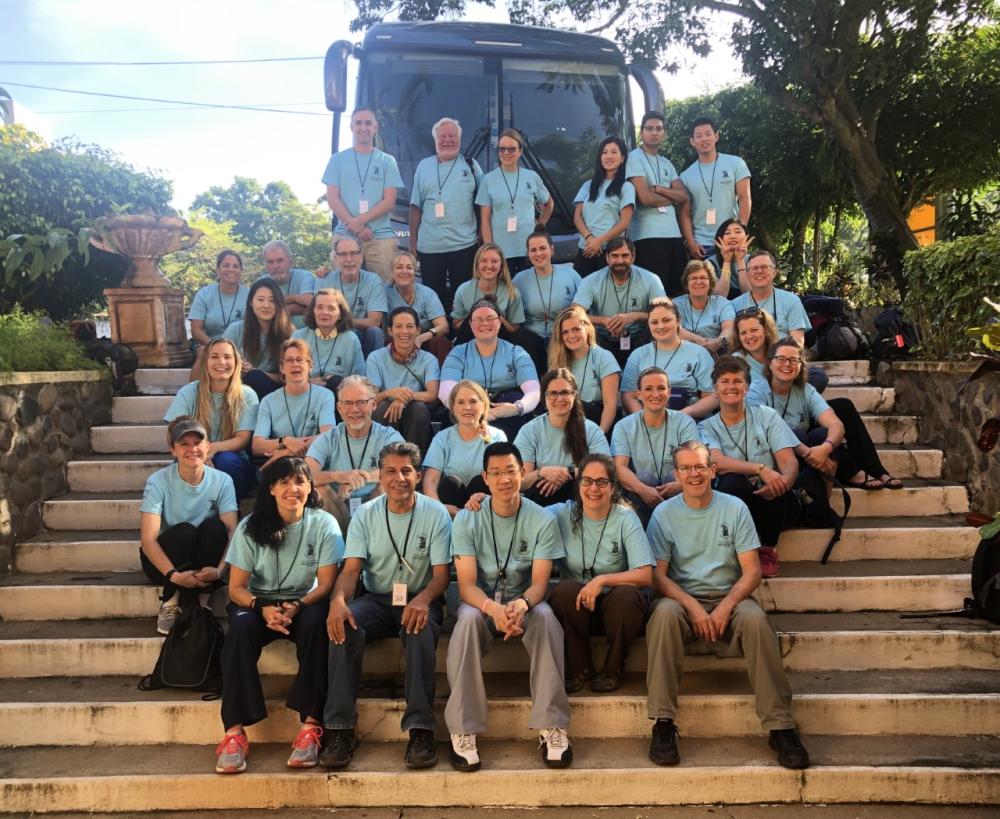
Expanding horizons
Jillian C. Hiestand, who graduated in May, is among nursing students who have traveled to Central America to help set up and staff a weeklong medical clinic in a remote area. “The travel abroad experience in Guatemala has opened my eyes to a deeper passion for nursing,” she said.

Developing new hands-on curriculum
A National Science Foundation grant is supporting the development of two certificates and an associate degree to meet the growing need for technicians in nondestructive testing. “Our degree will combine a year of welding instruction with a year focusing on nondestructive testing,” said Bradley M. Webb, dean of engineering technologies. “Penn College will be offering a unique approach for educating new NDT examiners.”
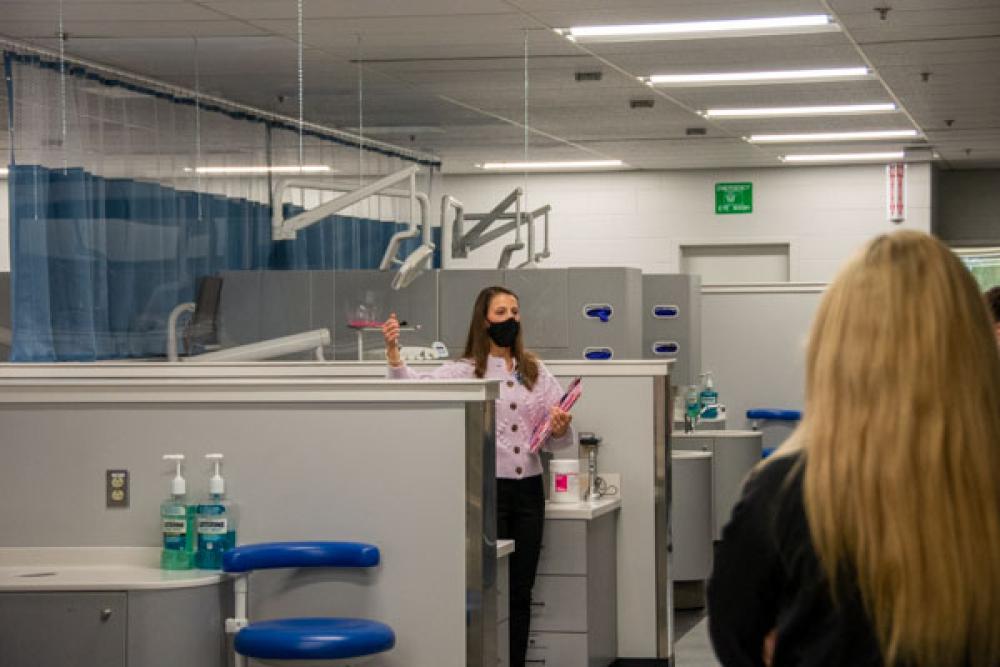
Reaching out
Starfish, a new early alert and student success program, was launched in August 2019. The system allows faculty and staff to raise a flag when students struggle academically or personally, offer encouragement and praise through kudos, and connect students with other campus resources through a referral process. More than 4,800 students were contacted through Starfish during 2019-20.
Welding on the world stage
“I like to learn by getting thrown on something and trying to figure out the best way to do it,” said Nolan Durecki, one of 15 welding students who did just that when they joined faculty in fabricating walls for an open-air sanctuary, now installed in Rome, that was produced in cooperation with the Vatican ecology division.

Learning to manage emergencies virtually
As their professional counterparts set up virtual emergency operations centers to manage the pandemic while maintaining social distancing, students in the emergency management and homeland security major did likewise, continuing their learning through web-enabled incident management software.
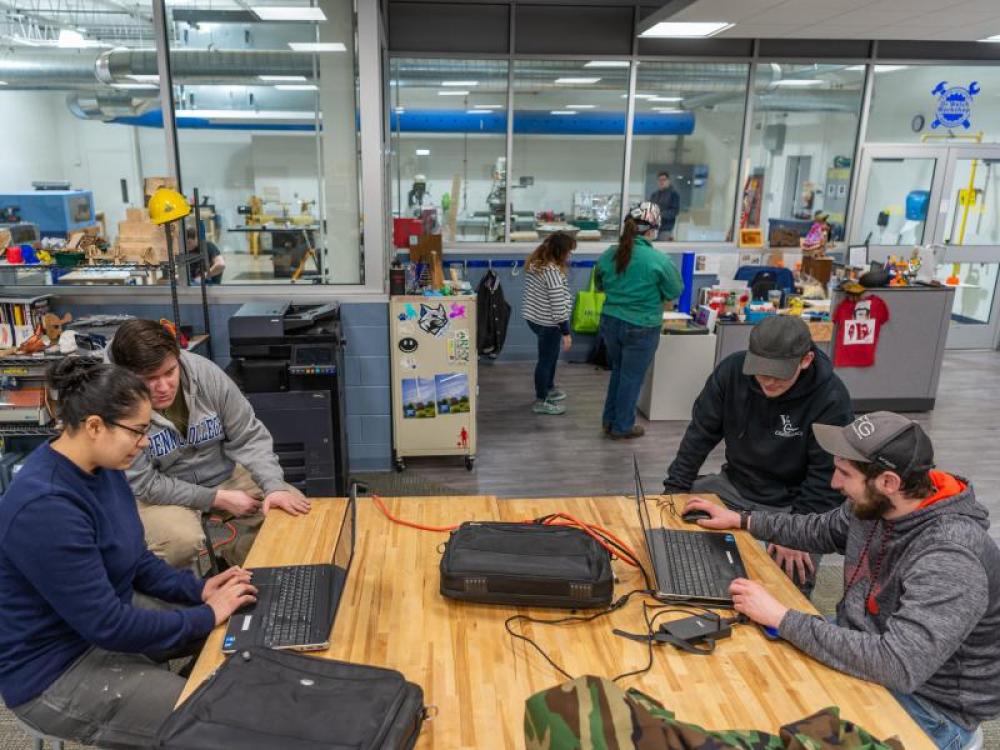
Making space for innovation
Since its opening in Fall 2018, The Dr. Welch Workshop: A Makerspace at Penn College, has been feeding the innate desire of Penn College’s tomorrow makers to create in their own time and in tactile ways.
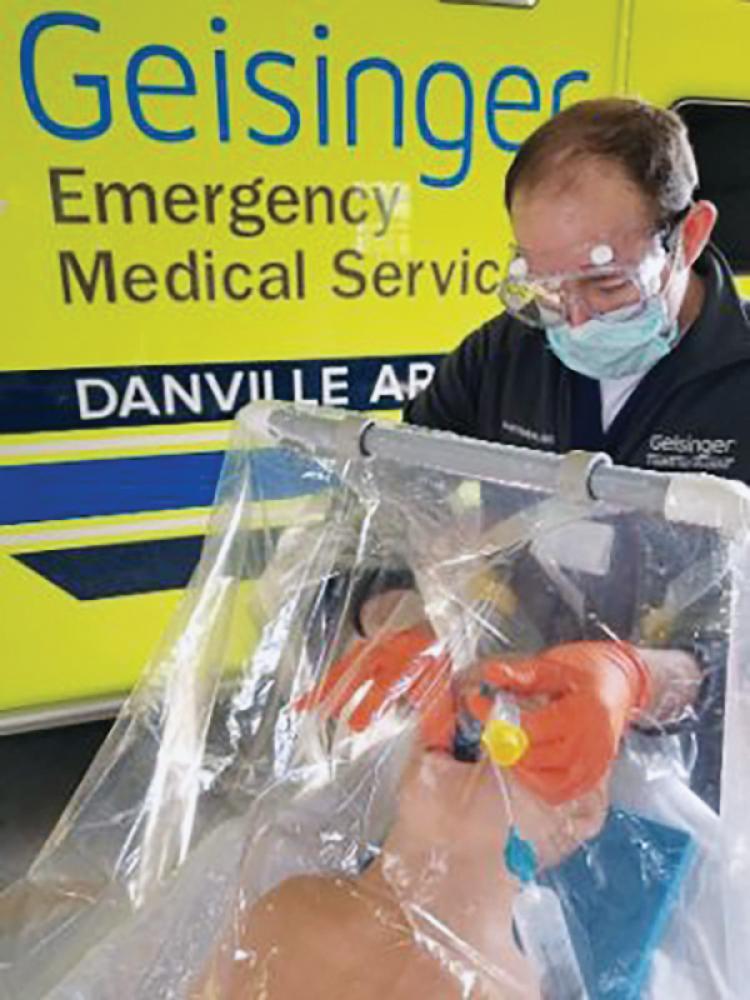
Enabling at-home learning
To provide the best possible education while keeping students safe, more than 93 percent of Spring 2020 classes were completed remotely. Meanwhile, employees provided laptops, delivered lab supplies to student homes and created unique online lessons.


